Talcum Powder Scandal: Cancer Claims and Recalls
The talcum powder scandal has emerged as a contentious issue, intertwining legal, ethical, and public health dimensions. It raises pressing questions about consumer safety, corporate accountability, and regulatory oversight in the face of serious health allegations. As lawsuits mount and verdicts bring significant financial repercussions for manufacturers, prominently Johnson & Johnson, the scrutiny over talcum powder's safety and the alleged link to cancer becomes more intense. This unfolding situation beckons a closer examination of the evidence behind these claims, the responses from implicated companies, and the broader implications for consumer products at large. What will this mean for the future of talcum powder and those who have used it for years, trusting in its safety?
Key Takeaways
- Talcum powder has been linked to ovarian cancer and mesothelioma, leading to multiple lawsuits.
- Johnson & Johnson recalled 33,000 bottles of Baby Powder due to asbestos contamination.
- In 2018, 22 women were awarded $4.7 billion in damages for cancer claims.
- Ongoing legal and federal investigations focus on the health risks associated with talcum powder use.
Talcum Powder Explained
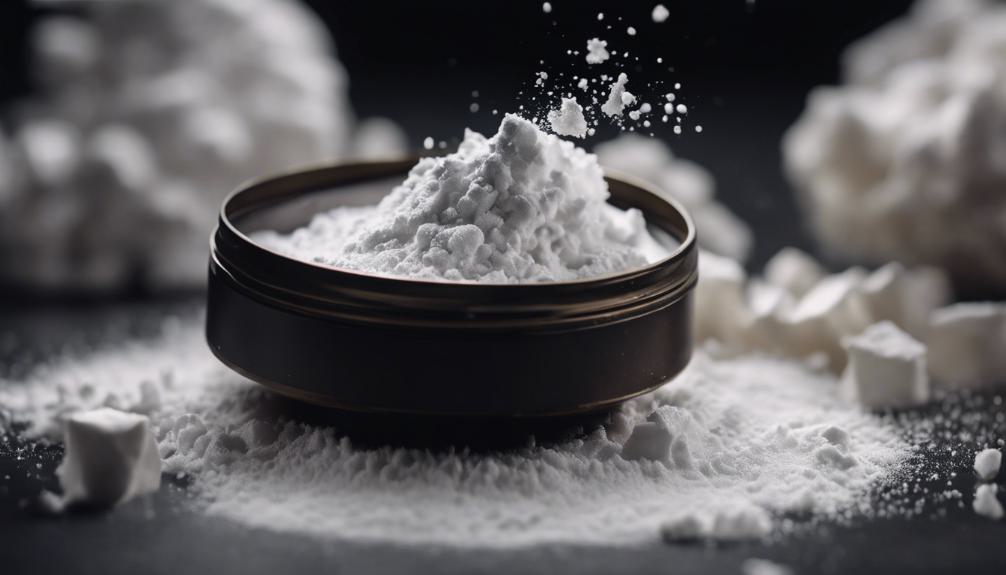
Talcum powder, a fine, powdery substance derived from talc, serves multiple purposes, including personal hygiene and cosmetic applications. Its primary component, mineral hydrated magnesium silicate, is known for its moisture-absorbing properties, making it a popular choice in products designed to prevent rashes and keep skin dry. Esteemed for its softness and silk-like texture, talcum powder has been incorporated into various beauty and health products, contributing to comfort and freshness. For those committed to enhancing the well-being of others, understanding the composition and uses of talcum powder is essential. It underscores the importance of selecting products that align with the highest standards of care and safety, ensuring that the needs of individuals are met with the utmost consideration and respect.
Cancer Link Controversy
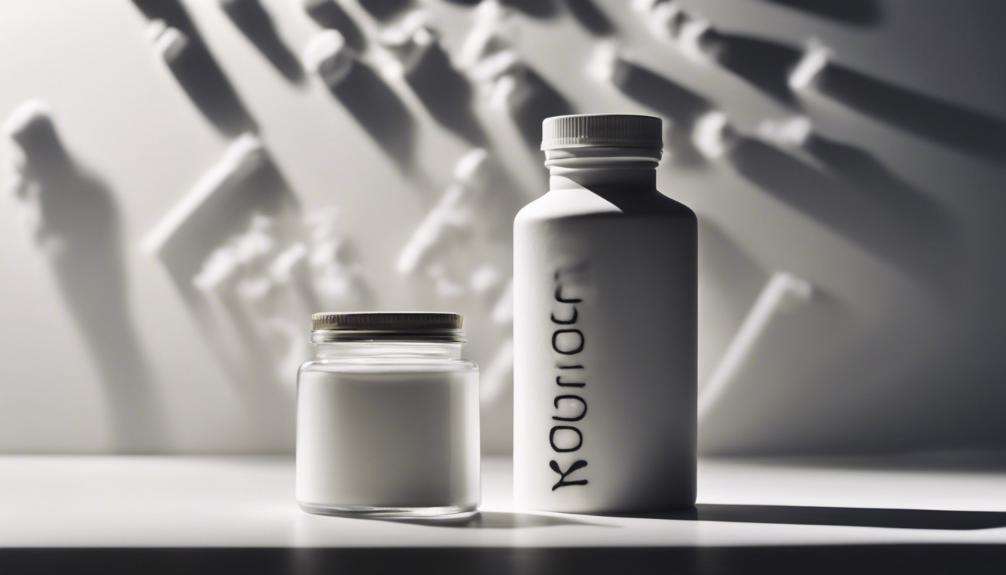
The controversy surrounding the potential link between talcum powder usage and the development of cancer has ignited widespread concern and debate among consumers and health professionals alike. As individuals dedicated to serving others, it is imperative to approach this matter with both empathy and a rigorous demand for evidence-based conclusions. The core of the debate hinges on studies that suggest a correlation between long-term talcum powder application in the genital area and an increased risk of ovarian cancer. Additionally, recent research has raised concerns about talcum powder potentially causing mesothelioma, a type of cancer associated with asbestos exposure. These findings have underscored the necessity for transparent, thorough research to ascertain the safety of talcum powder products and to guide informed decisions that prioritize public health.
Lawsuits and Legal Battles

Legal battles surrounding talcum powder have escalated, with numerous lawsuits alleging a failure by manufacturers to warn users of cancer risks associated with their products. Plaintiffs across the United States have taken legal action, claiming long-term use of talcum powder for personal hygiene has led to serious health conditions, including ovarian cancer and mesothelioma. These lawsuits contend that manufacturers, some of the most prominent being Johnson & Johnson, have known about the potential dangers of talc but chose not to inform the public, prioritizing profits over people's health.
Legal professionals and advocacy groups are diligently working to support affected individuals, offering guidance and legal representation to navigate the complexities of these cases. Their efforts aim not only to seek justice and compensation for those harmed but also to enforce greater transparency and safety standards in the industry, demonstrating a commitment to public health and ethical business practices.
Significant Verdicts and Awards

Several significant verdicts and awards in recent years have underscored the serious legal repercussions faced by manufacturers of talcum powder products, highlighting the financial and reputational costs of failing to warn consumers about potential health risks. In 2016, a jury awarded $72 million in damages to the family of a woman who died from ovarian cancer linked to long-term talcum powder use. This set a precedent, with verdicts in the same year ranging from $55 million to $110 million. In a landmark case in 2018, 22 women were collectively awarded $4.7 billion in damages, illustrating the magnitude of the issue. These awards not only reflect the severity of the allegations but also underscore the importance of corporate accountability and the need for vigilant consumer protection.
Asbestos Concerns Unveiled
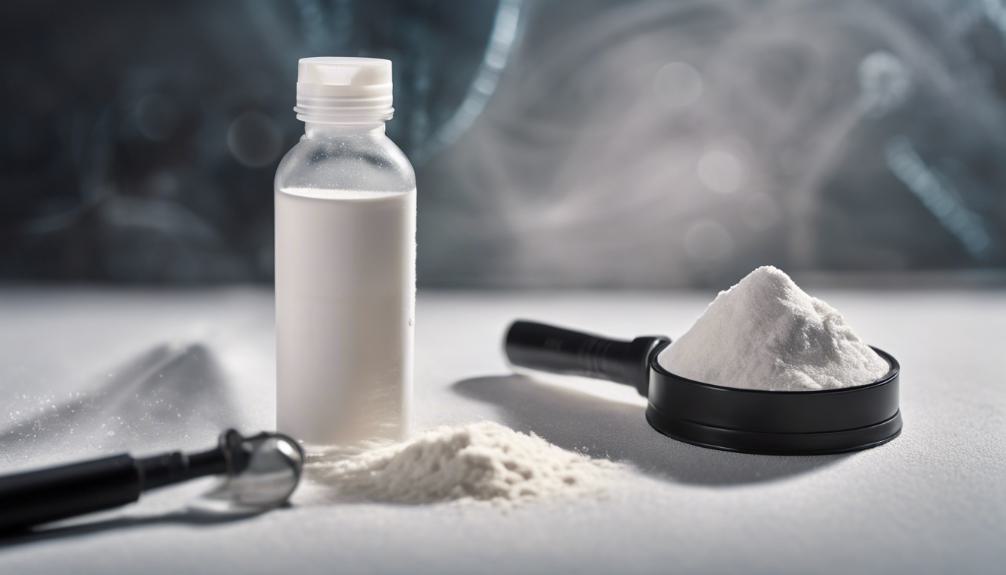
Building on the substantial verdicts and awards related to talcum powder, recent revelations about asbestos contamination have further intensified scrutiny on manufacturers. The discovery of asbestos, a known carcinogen, in talc-based products has raised significant public health concerns. Asbestos fibers, when inhaled, can lead to serious diseases, including mesothelioma—a rare and aggressive form of cancer primarily affecting the lining of the lungs. These findings underscore the vital need for rigorous product testing and transparency in consumer goods. For individuals dedicated to serving others, this situation highlights the importance of advocating for stronger regulatory oversight and supporting those affected by such negligence. Ensuring the safety and trustworthiness of everyday products is paramount in protecting public health and upholding ethical standards in manufacturing practices.
Federal Investigations and Findings
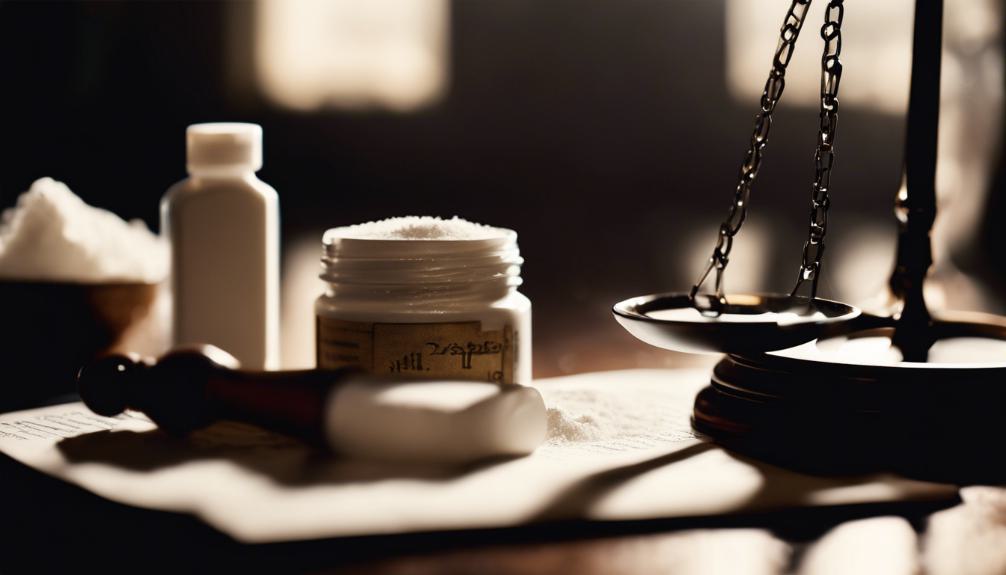
Recent federal investigations into the talcum powder scandal have exposed critical findings, shedding light on the extent of asbestos contamination in consumer products. These investigations, spearheaded by various federal agencies, have meticulously documented the presence of asbestos in talcum powder, a substance known for its carcinogenic potential. The detailed reports reveal systemic failures in regulatory oversight and quality control among manufacturers, raising significant public health concerns. Additionally, internal documents have surfaced, illustrating that some companies were aware of the asbestos contamination risks but failed to adequately inform consumers or regulators. These revelations have prompted calls for stricter regulations and oversight to protect public health and ensure that products designed for personal care are safe and free from harmful contaminants. The findings underscore the importance of vigilance and accountability in product safety to serve the public effectively.
Recall of Contaminated Products
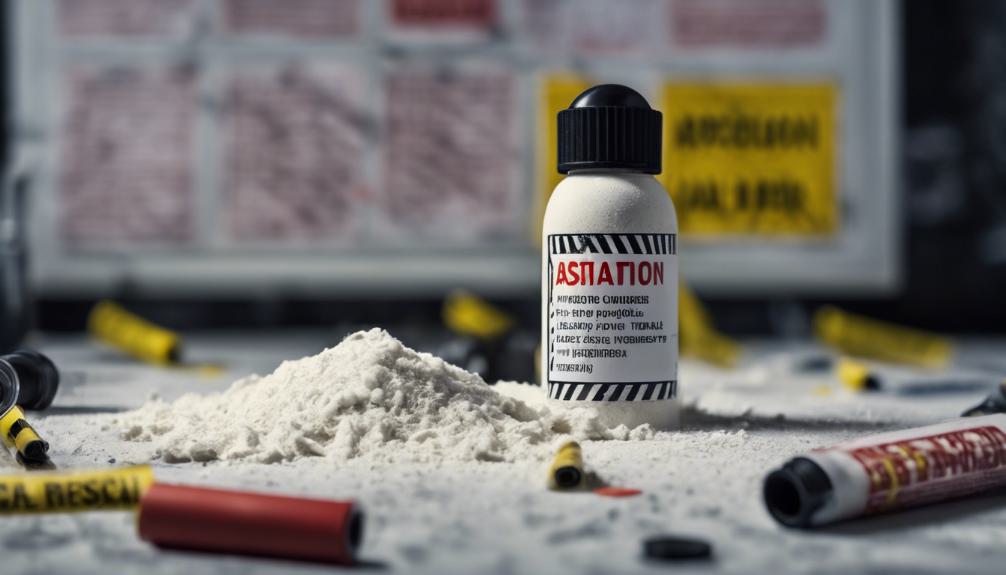
Following the revelations of asbestos contamination in talcum powder, numerous products have been recalled to address public health concerns. This proactive approach underscores the commitment to safeguarding consumer health, particularly of those most vulnerable, including infants and women. The recall of 33,000 bottles of Johnson's Baby Powder in 2019, after the FDA discovered asbestos, marked a significant turning point. Manufacturers and regulatory bodies are now more vigilant, intensifying quality control measures and transparency in product testing. For those dedicated to serving others, this situation highlights the importance of staying informed about product safety and advocating for rigorous standards. Ensuring the well-being of communities relies on our collective responsibility to demand accountability and prioritize health considerations in every aspect of consumer goods.
Legal Assistance and Settlements

Victims seeking justice and compensation for the alleged harms caused by talcum powder have turned to legal assistance, maneuvering a complex landscape of lawsuits and settlements. These lawsuits have highlighted the significant health risks, including ovarian cancer and mesothelioma, potentially linked to long-term talcum powder use. Legal professionals dedicated to serving those affected have been at the forefront, offering free consultations to diagnose victims and meticulously evaluating claims to secure rightful compensation. The path to justice has seen numerous high-profile verdicts and settlements, underscoring the gravity of the allegations and the importance of holding manufacturers accountable. For many victims and their families, these legal proceedings offer a beacon of hope and a possible avenue for closure and financial support during challenging times.
Johnson & Johnson's Response

Amidst the mounting legal pressures and public scrutiny, Johnson & Johnson has actively engaged in a series of actions to address the allegations and concerns related to their talcum powder products. The company has consistently stated its commitment to ensuring the safety and trust of its consumers, emphasizing rigorous testing and compliance with global health standards. In response to the lawsuits, Johnson & Johnson has allocated significant resources towards legal defenses, while also exploring scientific studies to further validate the safety of their products. Recognizing the importance of consumer confidence, they have made efforts to enhance transparency about their product ingredients and safety measures. This proactive approach underscores their dedication to not only defending their brand but also serving the best interests of their customers and the broader community.
Public Awareness and Safety
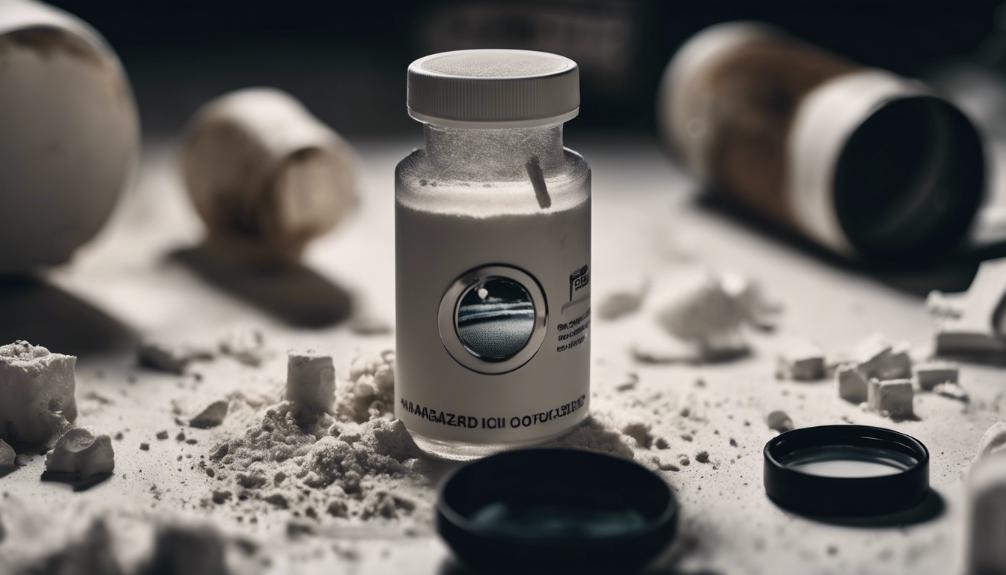
In response to growing concerns over the safety of talcum powder products, public awareness campaigns have been instrumental in educating consumers about potential health risks. These initiatives, often spearheaded by health organizations, advocacy groups, and affected families, aim to inform the public about the links between talcum powder use and serious health conditions, including ovarian cancer and mesothelioma. By distributing information through various channels, including social media, public seminars, and news outlets, these campaigns have greatly contributed to a heightened sense of vigilance among consumers. They encourage individuals to make informed decisions regarding their personal care routines and to seek safer alternatives. This collective effort towards public education is a crucial step in fostering a community that prioritizes health and safety over convenience.
Future of Talcum Powder Litigation

The landscape of talcum powder litigation is poised for significant developments, as ongoing trials and potential settlements continue to unfold. Advocates and legal professionals are closely monitoring these cases, understanding the profound impact on affected families and the broader implications for consumer safety. The revelations of potential asbestos contamination and the alleged link to ovarian cancer and mesothelioma have fueled a persistent quest for justice and accountability. As the legal battles progress, there is a collective effort to make certain that individuals harmed by talcum powder products receive the compensation and support they deserve. This endeavor not only seeks to remedy past grievances but also to enforce stricter regulatory oversight, safeguarding public health and reinforcing the paramount importance of transparency in product safety.
Frequently Asked Questions
How Can Consumers Distinguish Between Talcum Powder Products That Are Safe and Those That May Pose a Health Risk?
Consumers seeking to discern the safety of talcum powder products should prioritize purchasing items from reputable brands that transparently disclose ingredients and conduct rigorous safety testing. It is advisable to opt for products labeled as asbestos-free and to contemplate alternatives, such as cornstarch-based powders. Additionally, staying informed through reliable sources about regulatory updates and scientific research regarding product safety can further guide consumers in making informed choices.
What Are the Long-Term Health Monitoring Recommendations for Individuals Who Have Used Talcum Powder Regularly Over Several Years?
For individuals who have regularly used talcum powder over several years, akin to a gardener monitoring a planted seed, vigilance is key. It is advisable to conduct routine health screenings, including regular check-ups and discussions with healthcare providers about any concerns. This proactive approach allows for early detection of potential issues, embodying the principle of nurturing one's health as one would tend to a garden, ensuring its flourishing and longevity.
Are There Any Alternative Products to Talcum Powder That Offer Similar Benefits Without the Associated Health Risks?
In seeking alternatives to talcum powder, consumers can explore products that fulfill similar hygiene and comfort needs without the associated health concerns. Options include cornstarch-based powders, which are naturally absorbent and often used in baby powders. Baking soda and arrowroot powder are also effective for moisture absorption. These alternatives are widely regarded for their safety and efficacy in personal care routines, offering peace of mind to those prioritizing health and wellness.
How Has the Talcum Powder Controversy Impacted the Overall Industry Standards and Regulations for Cosmetic and Hygiene Products?
The controversy surrounding certain hygiene products has catalyzed a reevaluation of industry standards and regulatory measures for cosmetic and hygiene items. In the wake of these discussions, manufacturers and regulatory bodies have intensified their scrutiny of product ingredients, emphasizing the importance of transparency and safety. This shift aims to safeguard public health, ensuring consumers are well-informed about the products they use daily. The industry's response reflects a commitment to uphold consumer trust and prioritize well-being.
What Measures Are Being Taken to Ensure That the Scientific Research Regarding Talcum Powder and Cancer Risk Is Unbiased and Thorough?
To make sure that scientific research on the potential connection between talcum powder and cancer risk remains unbiased and thorough, regulatory bodies and research institutions are implementing stringent protocols. These include peer review processes, disclosure of funding sources, and collaboration with independent researchers. Additionally, there is an emphasis on replicating studies to verify results. Such measures are vital for fostering trust in the findings and facilitating informed decision-making regarding product safety and regulatory standards.
Conclusion
The talcum powder scandal has underscored the critical intersection of consumer safety, corporate accountability, and public health. Through extensive litigation and public outcry, awareness has been heightened regarding the potential risks associated with talcum powder use. A notable example is the 2018 verdict where 22 women were awarded $4.7 billion, highlighting the significant impact of judicial systems in addressing corporate misconduct. This scandal serves as a pivotal reminder of the importance of rigorous product safety standards and the power of legal recourse in safeguarding public health.

This post has been generated by AI and was not reviewed by editors. This is Not legal advice. Please consult with an attorney.
